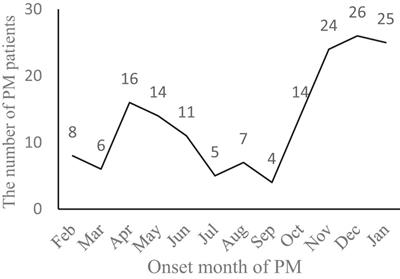ORIGINAL RESEARCH
Published on 03 Feb 2025
Analysis of intracranial lesions in patients with HIV-associated cryptococcal meningitis
doi 10.3389/fcimb.2025.1446470
- 192 views
1,223
Total downloads
4,741
Total views and downloads
You will be redirected to our submission process.
ORIGINAL RESEARCH
Published on 03 Feb 2025
ORIGINAL RESEARCH
Published on 14 Nov 2024
ORIGINAL RESEARCH
Published on 15 Mar 2024

